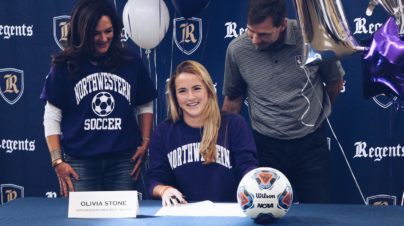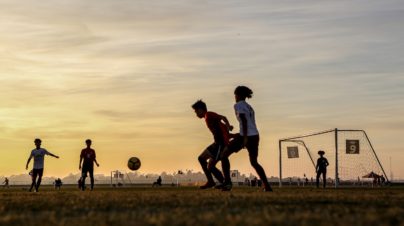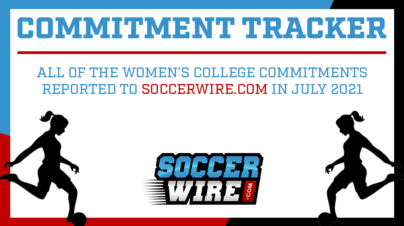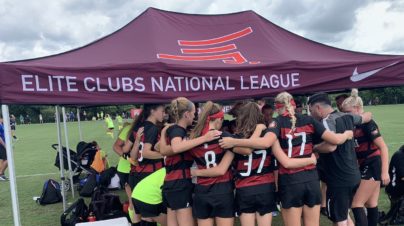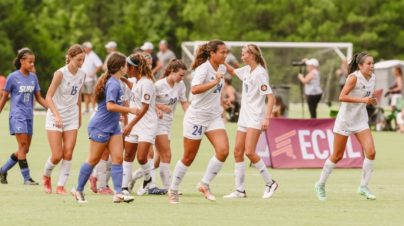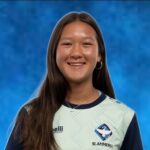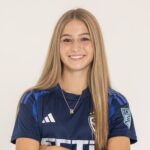All recruits should know these dates on the NCAA Soccer Recruiting Calendar
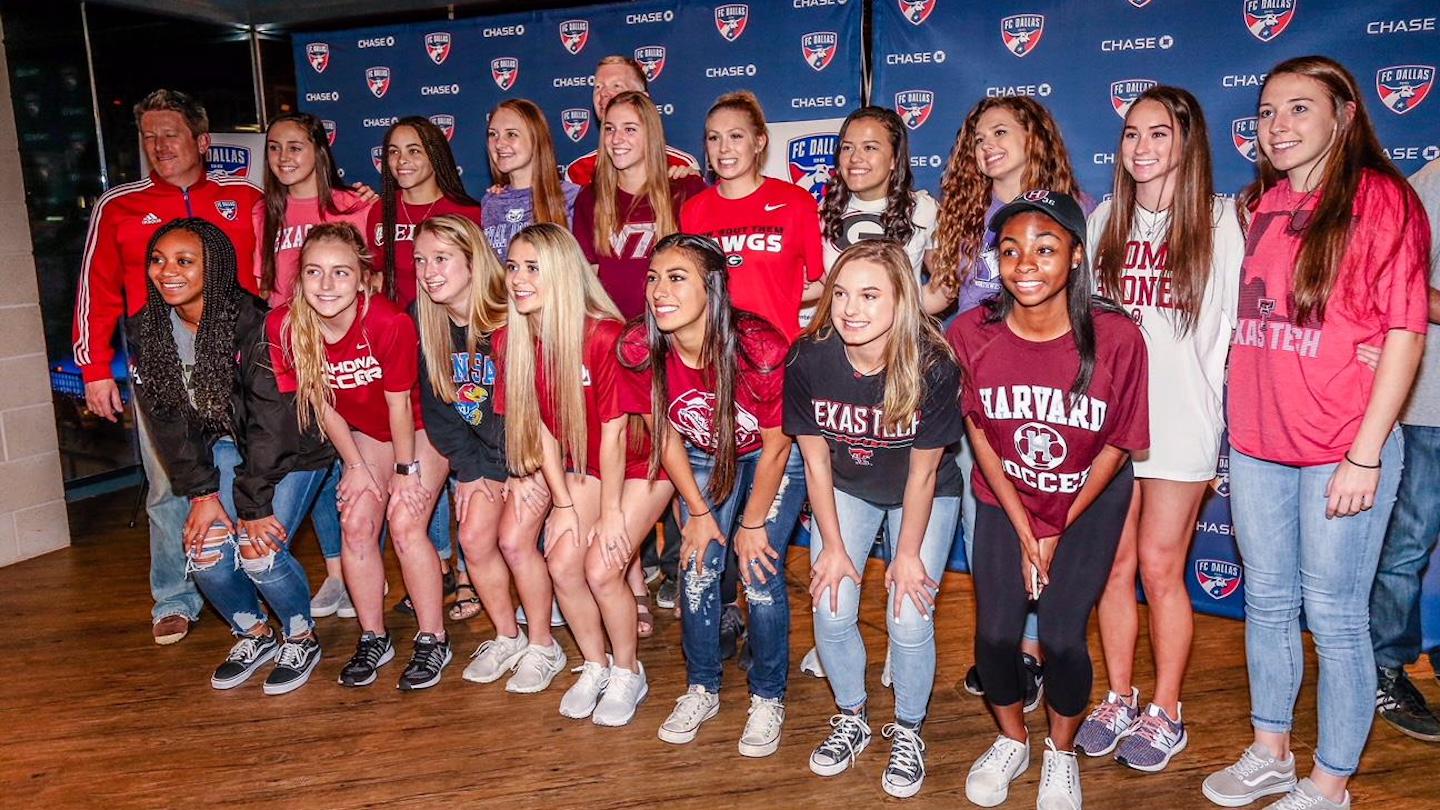
By Adam Schwager
SoccerWire Staff Writer
Playing soccer in college is one of the most universally shared goals among youth soccer players growing up in the United States. Even though there are over 1,000 college soccer programs nationwide for both men and women, the competition for roster spots and athletic scholarships is incredibly difficult.
While being able to play the game at a proficient level is an incredibly important baseline to have, being able to navigate the recruiting process remains a helpful skill that can be the difference-maker between you and another player of equal skill playing for your dream school. One of the keys to effectively navigating the recruiting process is knowing how to take the opportunities available to you, as soon as they become available. As the saying goes, the early bird gets the worm.
As a part of our continuing series on the must-knows of recruiting, we will be covering the NCAA recruiting calendar, and how you can use the schedule to give yourself an exposure advantage. Immediately below we’ve given a list of the key dates to know for both Division I and Division II schools. For more information on each date, and information on the recruiting calendar for Division III and the NAIA, you can read our more in-depth guide below.
NCAA Division I Key Dates (2021-22)
- June 15, 2021 | First day coaches are allowed to talk to eligible rising high school juniors directly outside of on-campus clinics and camps.
- August 1, 2021 | First day rising high school juniors are allowed to take official on-campus visits to interested schools.
- November 8-11, 2021 | First recruiting dead period. Coaches can communicate with players remotely, but no in-person contact is permitted.
- November 10, 2021 | First day high school seniors can sign a National Letter of Intent.
- December 10-12, 2021 (Men’s Soccer) | Second dead period for men’s soccer during the NCAA Men’s Soccer Championship.
- December 15, 2021-January 5, 2022 (Women’s Soccer) | Second dead period for women’s soccer during winter break.
- December 23-25, 2021 (Men’s Soccer) | Quiet period during the holidays. Coaches cannot communicate with players in-person off-campus, but can host official visits for students during this time.
- August 1, 2022 | Last day for rising college freshmen to sign a National Letter of Intent.
NCAA Division II Key Dates (2021-22)
- June 15, 2021 | First day coaches are allowed to talk to eligible rising high school juniors directly outside of on-campus clinics and camps. Also first day rising high school juniors are allowed to take official on-campus visits to interested schools.
- November 8-10, 2021 | Only recruiting dead period for Division II. Coaches can communicate with players remotely, but no in-person contact is permitted.
- November 10, 2021 | First day high school seniors can sign a National Letter of Intent.
- August 1, 2022 | Last day for rising college freshmen to sign a National Letter of Intent.
High School Freshmen and Sophomores (DI & DII)
Prior to the summer entering your junior year, forms of direct communication between prospective recruits and coaches are off-limits in most NCAA divisions. For Division I & II schools, no contact can take place until June 15 after the athlete’s sophomore season. The only exception to this rule is for schools who run on-campus camps and clinics where players sophomore year and below attend.
These events are the only avenue for college coaches to have any form of personal contact with players until June 15 after their sophomore year, although they are still not allowed to have conversations regarding recruiting in any manner.
Prior to June 15, there are still ways for both coaches and players to do roundabout recruiting, the most popular way being through club and high school coaches contacting college coaches. In these conversations, college coaches are only allowed to express interest in recruiting prospects and ask their current coaches what they think about players, but the conversations cannot directly recruit players through their current coaches until June 15 after the player’s sophomore year.
One of the most important things a prospective college athlete can do to increase their chances of getting recruited to their dream college is to have all your materials ready for that June 15 date. Create a list of schools, prepare your recruiting tapes and reach out to as many people as you feel necessary come June 15.
Junior Year Onward (DI & DII)
For Division II schools, the June 15 date opens the floodgates and all contact becomes permissible. For Division I schools, schools can engage in all forms of off-campus recruiting with athletes, but must wait a month-and-a-half until August 1 prior to their junior year to host an official recruiting visit. August 1 also generally marks the start of the upcoming soccer season for most schools, and the final day for rising college freshmen to sign a National Letter of Intent to their schools.
From August 1 prior to an athlete’s junior season until the fall of their senior year, athletes are free to be communicated with, outside of the annual dead and quiet periods. Athletes can make verbal commitments to schools, visit as many schools as they like and talk to whatever coaches they choose. Even after making a verbal commitment, players can still change their minds and are still technically on the recruiting market for any coaches to contact.
The first opportunity for recruits to officially end their process comes in early November of their senior year (November 10th, 2021 for those signing for the 2022 fall season.) At this point, athletes can sign their NLI (National Letter of Intent), a binding agreement between the athlete and their future school that we covered in-depth last week.
Dead and Quiet Periods (DI & DII)
The opening of the NLI period also marks the first recruiting dead period of the year, which always takes place Monday through Thursday of the week the NLI opens for Division I, and for the first 48 hours of the NLI period for Division II. During a dead period, coaches are not allowed to have any in-person contact with recruits, however they are still allowed to communicate via phone, email and social media.
For Division II, the initial NLI period marks the only dead period in the calendar, but both men’s and women’s Division I programs have a second dead period later in the year. For the men’s side, Division I programs have a dead period the Friday through Sunday of the Division I Men’s Soccer Championship (early December), and the women’s side has a dead period that takes place between December 15 through January 5.
The men also have one more “quiet period” from December 23-25, which differs slightly from a dead period. In a dead period, coaches and players cannot have any form of in-person communication, while in a quiet period coaches and players cannot have any form of off-campus in-person communication. During this time, however, athletes are allowed to visit schools they are interested in/that are interested in them and talk with the coach/athletic director and tour the premises.
For a Division I or Division II recruit, your recruiting ends the minute you sign an NLI with the school you plan to attend. Once the NLI is filed, it is your responsibility to tell all coaches who reach out to you that you are no longer interested in attending their school and being recruited because you have signed an NLI with another program.
Division III/NAIA
Division III NCAA programs and NAIA programs are much more relaxed on recruiting rules than Division I and II NCAA programs. There are no dead/quiet periods and recruits can be contacted at any time throughout their high school career. The NAIA truly has no major restrictions on recruiting, while Division III schools do have to wait until after an athlete’s sophomore year to conduct off-campus communications and cannot conduct official recruiting visits until after January 1 of a recruits junior season (the only rule more restrictive than NCAA DI or DII).
For Division III, the rules can be much more relaxed because schools are not allowed to offer any sort of athletics-based financial aid or sign any athlete to an NLI (as the stipulation for signing is the promise of athletics-based financial aid). Everyone attending an NCAA DIII school is technically walking on, as even if roster spots are promised, no financial benefits are given to the athlete in return.
As for the NAIA, most NAIA member schools recognize that NCAA DI or DII is the most common goal for student-athletes attempting to play soccer in college and are generally waiting on recruiting to see which athletes were not able to get on a DI roster for any variety of reasons.
For these reasons, NAIA and NCAA DIII recruiting tends to happen later than DI and DII recruiting, even if the rules governing them are much less restrictive.
SOCCERWIRE MARKETPLACE
- FC Bayern Soccer Camps - $30 PROMO CODE: BMSOCCERWIRE
- Real Colorado Cup 2026
- Join a College Coaches Showcase Camp Today
- MICFootball Punta Cana 2026
- Dana Cup Hjørring 2026
- 15th Annual Loudoun Soccer College Showcase
- OFFICIAL FC BARCELONA SOCCER CAMPS - PROMO CODE: FCBSOCCERWIRE
- New England Copa Surf 2026
- Adidas National Cup 2026
- Boston International Cup Memorial Day 2026

